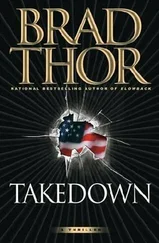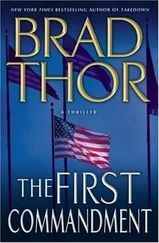“Roger that,” came the voice of Gretchen Casey over the radio. “Jules, are you all set?”
“I’m in position,” said Julie Ericsson, “but I still want to know why every time we do an op involving a social function, I’m responsible for transport.”
“Because you can’t tell a shrimp fork from a salad fork,” replied Alex Cooper, who was closing in on the palazzo from beneath the water next to Casey.
“That’s cute,” replied Ericsson. “You know what, Coop? Fork you.”
“Easy, everybody,” Casey cautioned her team. “Let’s make sure we’re focused and that we keep everything simple, just like we rehearsed.”
“How close are you to the entry point?” asked Rhodes.
“Thirty meters,” said Casey. Like the other two women, she and Cooper had been trained at the U.S. Army’s Special Forces Combat Diver Qualification Course in Key West Florida.
They were wearing dry suits and using closed-circuit Draegar Lar V “rebreathing” devices, which recycled their spent CO 2and prevented any bubbles from rising to the surface and giving them away.
Their DSI M48 Supermasks had integrated Aquacom communications that allowed them to talk with their other team members. Underwater propulsion devices developed for the U.S. military, called Seabob US7s, pulled them silently toward their objective with zero emissions. The high-tech water scooters, built near the Mercedes and Porsche factories in Stuttgart, Germany, came complete with sonar location technology, onboard navigation, speeds in excess of thirty miles an hour, and four hours of run time. They were among the hottest, and most expensive pieces of military equipment the United States had recently fielded. Nothing was being spared for this operation.
Fifty-two-year-old Nino Bianchi was a black-market arms merchant. No matter what the conflict or the customer’s ideology, he could procure almost any weapons system and have it delivered anywhere in the world. When he provided the plastic explosives used in a bus bombing in Rome that killed more than twenty Americans, the United States decided to do something about him. And they had just the right group to do it.
America’s primary counterterrorism unit, the First Special Forces Operational Detachment-Delta, also known as Delta Force, Combat Applications Group (CAG), or simply “The Unit” to its members, was created in 1977 by Army colonel Charles Beckwith. It was based on the British Special Air Service model and was designed to serve as a highly specialized force capable of carrying out direct-action and counterterrorism assignments anywhere in the world.
Divided into three operating squadrons (A, B, and C), the squadrons were then subdivided into troops and could be broken down into progressively smaller teams as their missions required. The smallest team normally consisted of four operators and was referred to as a patrol, or a “brick.”
The Unit’s operators excelled in a wide array of clandestine operations, including hostage rescue, counterterrorism, and counterinsurgency, as well as strikes inside hostile, off-limits, or politically sensitive areas.
Delta was headquartered in a remote section of North Carolina’s Fort Bragg. There, “behind the fence” as it was called, no expense was spared in training the world’s most elite warriors. The facility housed massive climbing walls, extensive shoot houses for close-quarters battle, sniper ranges, an Olympic-sized swimming pool, a dive tank, and multiple other training ranges and facilities that strove to anticipate the kinds of environments where operators could be called upon to deploy at a moment’s notice.
Besides the three operational squadrons, there were an additional nine detachments charged with providing operators with every form of imaginable support-from intelligence, training, aviation, and medical care to the most sophisticated weaponry and technology in the U.S. military’s arsenal.
Never content to rest on its laurels, Delta was always exploring new ways to make itself better, deadlier, and more efficient. Taking a cue from the success of its Operational Support Detachment, which often used women to gather intelligence in advance of Delta missions, it asked one of its most aggressive and forward-thinking questions. Why not train and field female operators?
It was an exceedingly good idea. In fact, it was such a good idea that many within Delta’s ranks were surprised that it hadn’t been pursued earlier.
Women normally attracted less attention in the field than men, and when they did, it was often of a completely different kind. Give a woman a dog’s leash, one person said, and she could wander around anywhere. Put a woman in a car with a baby seat and she could sit all day surveilling a target without attracting much notice. Women were welcomed in places men were not and could get away with things men could never dream of. A female operative capable of kicking in your door, shooting you in the head, or cuffing you and stuffing you in a trunk was the last thing most of the bad guys would ever expect.
With the approval of the Army’s Special Operations Command under which Delta was chartered, a group of operatives agreed to become recruiters. At first they looked within the armed forces for highly skilled, highly motivated women. There were some, but not nearly enough to fully meet the objectives that had been set for the all-female squadron they were creating, codenamed the Athena Project. Thus, the recruiters were forced to look outside the military.
They were searching for intelligent, self-confident, polished women who could blend in and disappear into foreign cultures. They needed to be athletic and highly competitive. They needed to hate to lose, because Delta Operators never lost; they won at all costs. The women needed to be driven in such a way that success had become part of their DNA. They also needed to be attractive.
It was a fact of life that people reacted differently to others based upon how they looked. If the female operatives were attractive, their beauty disqualified them as a threat and there was no end to what they could achieve. Men would do things they shouldn’t just to be near an attractive woman, extending opportunities and even information that would never be offered to their male counterparts. Men would try to impress them by bragging and inviting them to see things normally off-limits. In essence, men could often be counted on to act stupidly around an attractive woman. And those who didn’t could very likely be counted on to underestimate a woman, especially an attractive one.
As the Delta recruiters cast their nets outside the military, they began haunting high-end female athletic events. They trolled for potential candidates at triathlons, winter and summer X Games, universities, and U.S. Olympic training facilities. The sport didn’t matter as much as whether a candidate possessed the essential characteristics.
The selection and assessment process was extremely difficult. Many women didn’t make the cut. Standards, though, were never dropped just to fill out the ranks.
The women who did pass the selection and assessment phases were exceptional, none more so than the brick of four women about to snatch Nino Bianchi from his extremely fortified home. They were all fiercely determined, fiercely loyal, and fiercely competitive, but other than that, they couldn’t have been more different.
Alex Cooper was the twenty-eight-year-old, biracial daughter of an Ethiopian mother and an American father who owned a small restaurant in Atlanta. After high school, she went on to attend the University of Arizona as a communications major. There she became attracted to ultramarathon running-a sport that saw competitors in events racing over twenty-four hours, several days, or even thousand-mile distances. The sport suited her unwavering, granitelike determination.
Читать дальше












